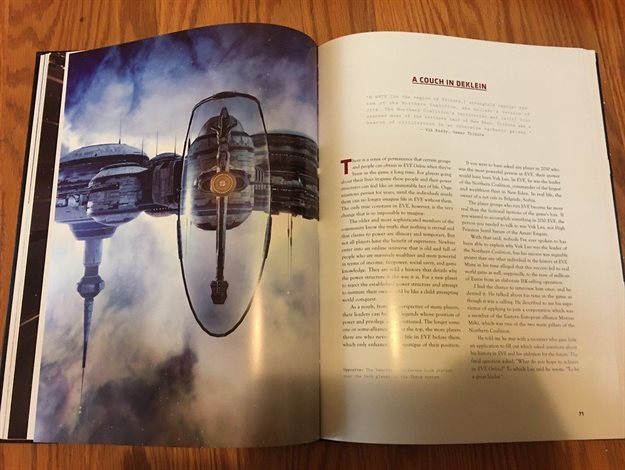#PulpNonFiction: Imaginary empires; real lessons
You just have to show people that there is hope... Just show the people that there is a tiny hope that exists.
That line comes from an outnumbered and outgunned commander on the brink of an epic battle for the future of the universe.
An epic battle, that is, that never really happened. Only it did, sort of. It’s a line written by a prominent player of the space opera massive multiplayer online game, EVE Online, as quoted by the game’s historian, Andrew Groen, in the first volume of his anthology, The Empires of EVE.
As Mark Zuckerberg is tempting us to join him as an avatar in the (legless) Meta universe and Microsoft is suggesting that it would like you to don a headset join a virtual Teams call (also sans VR legs), it’s time to think about the metaverse - and check our “reality privilege”.

Which is why I picked up The Empires of EVE - the all too real history of an unreal world. If you want to understand the metaverse, it’s a pretty good place to start. The author takes us through the rise and fall of players, the characters, communities, alliances and enemies they form and betray, and the epic complex narrative they co-create along the way. What strikes the reader is just how real the dramas are. If one was to change the names and locations, you could easily believe that you are reading a history of a real human civilisation.
Take this quote for example:
People are taught in western schools that democracy is the best form of government, but the reality is that’s not true in a video game… It can be disturbing how much people want to subsume themselves to a common cause. Particularly with how they respond to tyranny.Aside from the word “video game” it could have been written about just about the origins of just about any 20th century totalitarian regime - or, for that matter, about any number of Biblical era tyrants.
The issues, intrigues, betrayals and heartbreaks depicted in EVE online are all too recognisably human. Human nature and what drives us is remarkably consistent, whether we are online or on the front line of a war zone. Which begs the question - what is real anyway?
If the motives, emotions and emotions that play out in a game world are reflected with predictable consistency in our “real” world, the games we play can teach us real lessons about who we are and how to lead our crews and communities through the literal and figurative battles that lie ahead with courage and conviction.
The history of EVE is the history of us. It’s the history of teamwork and tyrants, cowards and courage in the face of impossible odds.




































